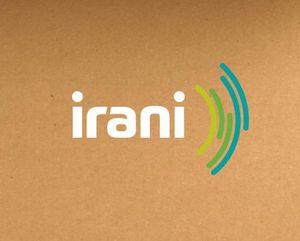South Korea is gearing up to commemorate the 106th anniversary of the March 1st Movement, marking a pivotal moment in its struggle for independence. On February 28, 2025, just before the official celebration on March 1, several key events unfolded at the National Assembly, emphasizing the importance of this historical milestone.
U Won-sik, the Speaker of the National Assembly, hosted a luncheon attended by descendants of independence activists and highlighted the movement's significance. "The 3·1 Movement was the basis for the establishment of the provisional government and the embodiment of the spirit of Korean independence," he remarked, reinforcing how the movement is intricately linked to the identity of modern South Korea.
U Won-sik continued to stress the historical importance of the March 1st moment, stating, "The spirit of independence we must carry forward is more important than ever." He noted the necessity for the National Assembly to actively uphold the ideals of the independence movement, which aimed not just for the liberation from colonial rule but also for the establishment of democratic governance.
One significant aspect of the commemorations was the installation of a large banner on the exterior of the National Assembly building, modeled after the historic Jin Gwan Sa Taegeukgi, symbolizing the unity and resilience of the Korean people during their struggle against colonial oppression. This flag holds deep historical significance, as it directly relates to the sentiments forged during the 1919 movement.
Attending the session, Joo Ho-young, Deputy Speaker of the National Assembly, expressed concerns over the residual impacts of colonialism, stating, "We must continue the spirit of our ancestors by making our country safer and prosperous." His remarks underscored the complex historical legacy and the challenges South Korea still faces today, including contentious relations with neighboring Japan.
Kim Jin, Vice Chairman of the Korea Liberation Association, offered poignant insights, stating, "The history of independence is built by our common people, and must not be tarnished by any group." He raised alarms over the existence of groups working to distort or undermine the history of South Korea's resistance movement, vowing his commitment to guard this history fiercely.
The events leading up to the centennial reflect not merely reminiscence but also reinvigoration of the national purpose and identity. Numerous officials emphasized the need to transform Independence Day celebrations, advocating for it to become more than just memorial observances but also vibrant expressions of national pride.
Historically, the March 1st Movement was not just about declaring independence; it was about asserting identity and unity among the Korean people. The movement arose out of oppression, marking the collective desire for freedom and sovereignty following decades of Japanese rule. Over the decades, this day has evolved, representing the emergence of South Korea's modern democracy.
Reflecting on these themes, U Won-sik noted the responsibility of the National Assembly to encourage educational initiatives and public engagement around the history of the independence movement. He mentioned plans for the future, including hosting festivities on the eve of Independence Day, aiming to reflect the spirit of unity and cultural richness inherent to the Korean identity.
The commemorations will culminate on March 1, with widespread public participation expected across South Korea. Various cultural programs, educational activities, and historical re-enactments are planned, aimed at drawing connections between past struggles and present realities.
2025 is earmarked as a significant year, marking the 80th anniversary of liberation and the 106th anniversary of the March 1st Movement, compelling reminders of the struggles endured and victories attained. The themes of unity and renewal resonate strongly, as citizens are encouraged to honor and reflect upon the sacrifices of their forebears.
These commemorative events, framed against current socio-political contexts, reveal the enduring significance of the independence movement’s values—democracy, national pride, and resilience. Ensuing discussions and celebrations promise to invigorate the national spirit, ensuring the lessons and ideals of the past are not only remembered but also actively lived out.
March 1st stands as more than just a historical date; it embodies the essence of Korea's fight for autonomy, unity, and identity—a legacy to be preserved and cherished for generations to come.



